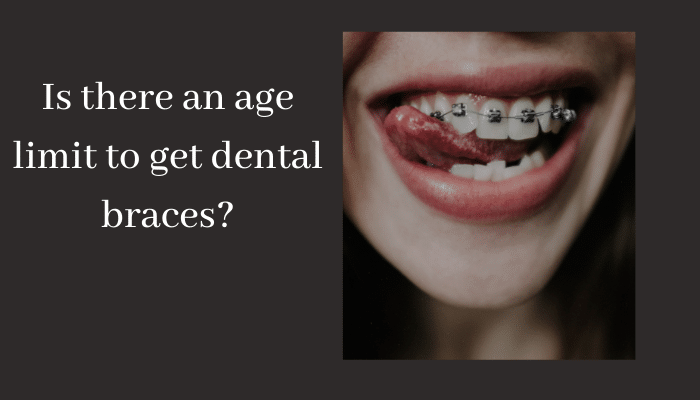If you have crooked or crowded teeth, overbites, underbites, and incorrect jaw position, or disorders of the jaw joints, you could be a candidate for braces. These problems are more than just cosmetic. Crowded or overlapping teeth can be more difficult to clean, resulting in tooth decay and gum disease.
Also, overbites and underbites can cause chewing and swallowing problems. What’s more, poor tooth alignment can make it difficult to pronounce certain sounds. It can also put excessive stress on the chewing muscles, resulting in facial pain.
While there is no age limit for braces, it is best if braces are applied to the teeth between the ages of 10 and 14 years of age. This is because at this age, the head and mouth are still growing and it is easier to straighten teeth.
However, braces are not just for children, with more and more adults wearing braces to correct their orthodontic problems and to correct their smiles. Contrary to stereotypes, there is no best age to get braces and you can wear braces at any age, provided your teeth and gums are reasonably strong.
There are also certain things to keep in mind before you get dental braces, which is what we’ll discuss in this article…We shall also talk about why many adults choose not to get braces despite being a possible candidate for them.
What to keep in mind before getting braces
There are certain things you need to know before you opt for braces for yourself or your family. Here are the top three…
- You should have strong teeth and jaws: You can be fitted with braces at any age, provided you have healthy and strong teeth and a normal jaw bone. Dentists consider this very important, in order to avoid unwanted consequences, such as jaw issues, gum disease, and tooth decay.
- You may have a complicated misalignment: If you are an adult, it is likely that your teeth have stopped growing, thereby making it more difficult to correct more severe misalignments. Some structural changes in adults cannot be accomplished with just braces alone and may require oral surgery. However, cases vary from patient to patient and it is impossible to generalize based on age.
- You may need more than orthodontic treatment: Adults seeking dental braces may realize that there are other dental issues that need to be fixed, before opting for braces. For example, if you have gum disease, your dentist may refer you to a periodontist for treatment. You may also need a filling, a root canal, or other dental treatments in preparation for installing dental braces.
However, studies have shown that correcting adult teeth using dental braces is just as successful when compared to their younger counterparts. Also, adults tend to be more compliant with the advice and instructions were given to them by their dentist, resulting in a high success rate. Also, it has been shown that adults who opt for braces are more likely to look after their teeth better and to follow consistent oral hygiene.
Why some adults choose not to have braces
There are certain reasons why some adults choose not to opt for braces. Here are some of them…
- Physical and social inconvenience: Due to the fact that braces are more commonly seen in children and adolescents, many adults shy away from getting bulky braces. The fear of being judged is one of the main reasons why adults choose not to opt for dental braces. However, some braces are almost invisible and more discreet and these could suit adults more than the obvious, visible braces.
- Diet and lifestyle changes: Adults are also worried about diet and lifestyle changes that may occur if they opt for braces. If you are wearing dental braces, your dentist may ask you to avoid eating certain foods to prevent staining your teeth or damaging the brackets and wires. However, most people get used to these new eating habits fairly quickly. It is important to remember that braces are not permanent and will be removed. Following a diet that is temporary is a small price to pay for absolutely straight teeth and that perfect smile.
- Wearing braces for an extended period of time: Most adults do not need to wear braces for any longer than an adolescent would. Once you have your braces installed, your dentist will give you detailed instructions as to how to take care of your braces and your teeth and gums. If you follow these instructions carefully, you may not need to wear braces for any longer than absolutely necessary.
So, you see, you can get braces at any age. It is imperative, however, that you choose the right dentist. You can certainly find one at Vistadent, the Orthodontic Speciality Clinic. Your dentist at Vistadent, will consult one-on-one with you and treat you as an individual and not just as a case.
Your dentist will work with you to determine the kind of braces that are right for you and will advise you as to how long you need to wear the braces. Your dentist at Vistadent is adept at installing dental braces for both adults as well as children.
At Vistadent, we recognize the uniqueness of each patient and will work closely with you not only to fit you with the right dental braces but to also continually advise you once the braces are fitted. So, if you or someone you know needs to get fitted with dental braces, don’t hesitate to contact Vistadent and come away, knowing that you have made the right investment in your million-dollar smile!
For more information about dental braces or any other dental problems, as well as other dental procedures, contact Vistadent, the Orthodontic Speciality Clinic, at 040-23388111 or +91 9866572482 or at info@vistadent.net or visit our website at http://vistadent.net/.

